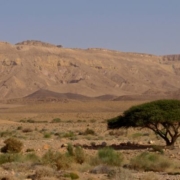Graceful Offerings / Graceful Masculinity – Vayikra
Part of a periodic Torah series on graceful masculinity and Jewish values.

וְאִםמִן–הָעוֹף עֹלָה קָרְבָּנוֹ, לַיהוָה: וְהִקְרִיב מִן–הַתֹּרִים, אוֹ מִן–בְּנֵי הַיּוֹנָה—אֶת–קָרְבָּנוֹ.
If one’s offering to Hashem is an olah offering from the fowl, one should bring their offering from the turtledoves or from the young doves.
Vayikra 1:14
When G-d introduces G-d’s self to Moses at the burning bush (Exodus 3:5), G-d says: “Do not come closer. Remove your sandals from your feet, for the place on which you stand is holy ground.” At Mount Sinai, when G-d reveals G-d’s self to the world, it is also amidst fire, and again we are warned to make borders and not approach the mountain (Exodus 19:12). The main purpose of the Torah is to guide us in coming closer to G-d. This models a healthy relationship where each party defines what the appropriate closeness is for themselves, which then informs the available proximity that the other is invited to approach.
The offerings, korbanos in Hebrew, literally means an act of closeness, and is a representation of self sacrifice. However not all acts of self sacrifice bring us closer to the Divine, or to each other. It is necessary to be able to discern what are the healthy and holy pleasures that we are meant to pursue; those that elevate all involved and transcend physical limitations into spiritual spaces. We also need to take care not to cross dangerous lines of consumption and debasement, while also avoiding asceticism.
The first chapter of Vayikra discusses bird sacrifices. “From the turtledoves” מן התורים (min hatorim) is understood as allusion to two Torahs, the oral and written (Rabbeinu Efrayim). There is often a vast space between what the text says and what it actually means. God tells us that investing and toiling in the process of understanding the Divine Will, through Torah study, brings us closer to G-d. Perhaps for this reason the Talmud teaches (Eruvin 63b) that the study of Torah is greater than the offering of the sacrifices.
Hillel had 80 principal students, the greatest of whom was Yonatan ben Uzziel. The story is told (Sukkah 28a) that when Yonatan ben Uzziel would sit and learn Torah, any bird that would fly over his head would be incinerated. Tosafot explains that his teachings were comparable to the giving of Torah, which was done with fire. Another Medieval commentary, R’ Chananel, explains that the Divine Presence was there, and therefore the space was designated as sacred.
Yonatan ben Uzziel is also the author of the classic Targum, translation of the holy texts, known by his name. The Minchas Elazar posits that the act of translation, by its nature, is to bring outsiders in, by granting access to otherwise guarded spaces. For this reason it was necessary to add an additional layer of protection to mark the contours of this space, with fire.
The Torah is also referred to as derech / a “path” (Exodus 18:20) because it informs how we are meant to travel and navigate this world. In Sotah 49a we are warned that if two Torah scholars are walking along the way / the derech and there are no words of Torah between them, then they are deserving of being burned in fire. The Ben Yehoyada explains this teaching by quoting the Prophet Jeremiah (23:29) that Torah is also called אש aish – fire. He continues that those who learn Torah generate חן chein – grace, and observes that the combined numerical value, 301+58, equals שטן 359 – Satan, a force that was appointed to distract us from G-d. “Therefore, two scholars who are traveling on a dangerous path, and are not learning Torah to combat the evil opposition, are then worthy of being consumed by the fire of the Satan,” instead of being led by the light of Torah.
It is the way of the evil inclination to falsely present the bad as good, like “stolen waters are sweet”(Proverbs 9:17). Our response, the Rabbis teach (Kiddushin 30b) is to “pull it into the study hall,” quoting again from Jeremiah: “Is not My word like fire, says the Lord?”. Through the study of Torah we are able to both connect to the source of all truth and also achieve the ultimate pleasure, coming closer to G-d through respectfully engaging with each other.

By R. Mike Moskowitz.









